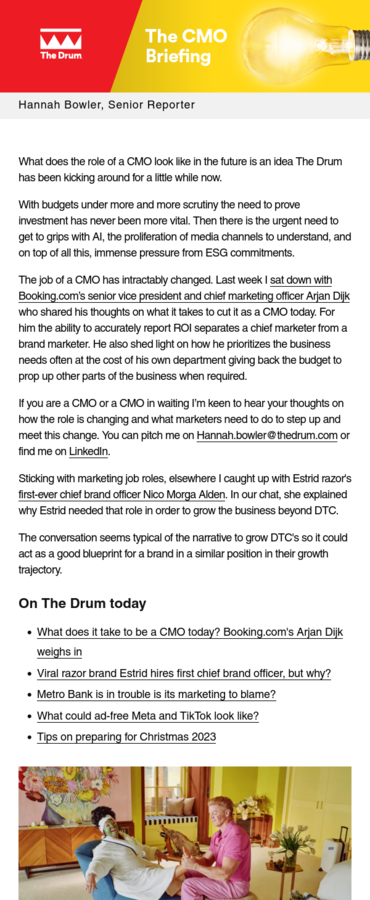The rise of AI: should you use artificial intelligence in your marketing?
Movies have been exploring AI for years. In fact, the phrase ‘artificial intelligence’ often conjures up memories of The Matrix, with Neo kung fu fighting his way through a simulated world. As cool as that vision is, AI has morphed into much more than that – for marketers at least.

Artificial intelligence in marketing
Artificial intelligence has shape-shifted through the years, morphing into a million, algorithmic marketing possibilities. This has spurred companies into figuring out how to elevate their marketing by incorporating AI into their strategies. And yes, it goes much further than just funky visuals. In fact, AI can help marketers make relevant, data driven decisions based on consumer behaviors alone. To utilize the power of AI we must first realize its ever-growing potential and how as marketers we can put it to maximum use.
How is AI used in marketing?
AI has enormous potential for companies since the primary activities of marketing involve analyzing customer behaviors, and understanding their wants and buying capabilities. This is AI's wheelhouse - automating decisions for marketers based on collection and analysis of data. Here are just a few examples of how companies are utilizing AI in their marketing:
Data analysis: The collection and sifting through large amounts of campaign and personal data that would normally be processed by a human. This includes competitor intelligence, market analysis, customer insights, and consumer behavior.
Tailored messaging: A method of communication-based on data collected from a digital customer profile. Analysis of where and how they purchase, as well as communication preferences helps master touchpoints across different mediums. It is an essential method of omnichannel marketing which crosses channels to communicate with a customer.
Image analysis: Image recognition technology assists in identifying images and the details they contain. This assists brands in developing a strategy to includes images that better connect with consumers.
Logo recognition: Collects data on how often a brand logo is visible in videos or images shared across social channels. This permits marketers to measure the viability of sponsorship, or other campaigns, on different platforms.
Experience personalization: Uses NLP (Natural Language Processing) to create humanized language for such things as customer service bots, content, and voice purchases. This helps to personalize a customer’s brand experience based on their past buying actions.
Content generation: Writing situational content such as website copy, emails, captions, and social media posts through algorithmic content analysis.
Advertisement
How is AI used in digital marketing?
Digital marketing has created its own set of problems, as the enormous amount of data being collected is dragging down the current capabilities of many companies. AI to the rescue. Artificial intelligence can filter and analyze data at lightning speed, culling only the information that is valuable to brands marketing strategies. This allows for more focused, specific campaigns directly targeting a specific set of consumers.
AI also lets companies leverage ‘machine learning’ on their devices, or other touchpoints so that data can be analyzed effectively, and in many cases, instantly. Something as simple as recommending a related purchase item, or automatically shifting ad campaigns based on the customer’s clicks, can make a remarkable difference in the consumer experience and your bottom line. It is this kind of instant gratification, so to speak, that makes the buying journey smooth and attracts buyers in droves.
Advertisement
How will AI affect marketing?
As artificial intelligence continues to grow as a field, its possibilities for marketing could reach epic proportions. A recent intelligence survey stated that 59% of companies expect to see substantial effects within five years. AI's role as a solution based, time, and money-saver can easily pave the way for better connections between consumers and companies. However, because of its infancy in marketing, companies must write new rules for it’s effective and ethical use.
Privacy: Privacy concerns are foremost, with the analysis of personal data breaking barriers left and right, good and bad. Unfortunately, personal information can be fair game and data breaches are a common occurrence. It is your responsibility as a company, to make sure any data collected is secure and protected. This is easier said than done with many of the major companies who collect personal data, Target, and Mastercard just to name a couple, having had major breaches of sensitive customer information. In fact, a survey by Yell reported 75% of respondents worried their data would be hacked. The results of such a breach can result in heavy fines, legal ramifications, and loss of customer trust.
The value of AI: While AI strives to be fully automated it still takes training for algorithms to learn their functions. This involves time, money, current technology, and above all else human beings. Getting senior management on board with an uptick in AI technology can be a frustrating step for many companies since proving the value of AI isn’t always easy to demonstrate. It takes a well-thought-out strategy to determine how artificial intelligence will sit within your future marketing, with both challenges and advantages fully explored. ROIs, and KPIs aside, measuring your AI success must be consistent and specific with tools geared toward your company’s goals.
Suggested newsletters for you
The human factor: The future of employees must also be determined since some roles may disappear with the replacement of AI strategies, while other roles need to be created to keep the technology in check. It is a conundrum that people have faced since computers were first invented, who stays and who goes. Fortunately, technology doesn’t build itself and creative minds will always prove themselves worthy of an advanced job. In fact, it is these ‘creative minds’ that ensure a prosperous future for AI marketing, and the possibilities that artificial intelligence may hold.
Wrapping up
Whether your company is an early adopter of artificial intelligence or you have a stubborn stronghold to first witness the actual results of others, it’s obvious that AI holds a permanent place in future marketing strategies. Complicated algorithms and data analytics can easily be placed into the capable hands of AI and AI programmers. Companies must grow with the times and if that brings rapid progress and increasing revenues then there is little reason not to jump into the matrix of possibilities that AI can bring. Maybe Keanu will even be there.
For more expert marketing tips, check out The Drum Plus.

